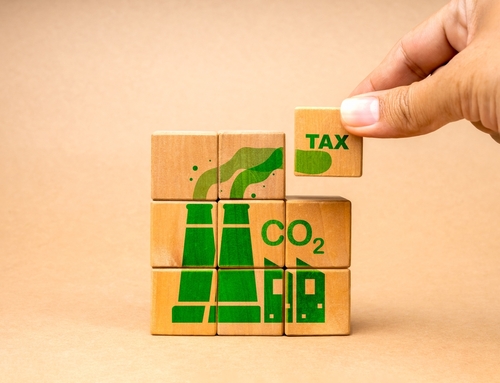
Pennsylvania Sen. Gene Yaw (R-23) is seeking cosponsors for legislation he plans to reintroduce that would repeal regulations for the CO2 Budget Trading Program, also known as the Regional Greenhouse Gas Initiative (RGGI).
Specifically, the RGGI is a cooperative effort among 11 Eastern states to reduce carbon dioxide (CO2) emissions from fossil fuel power plants within each participating state. Former Pennsylvania Gov. Tom Wolf on Oct. 3, 2019 issued an executive order to unilaterally enter the state into the RGGI.
Yaw plans to reintroduce a bill that would rescind the program, which created a carbon tax on electric generation that the the Commonwealth Court ruled violates the Constitution because Pennsylvania’s participation in RGGI may only be achieved through legislation duly enacted by the General Assembly and not merely through a rulemaking that was promulgated by the state’s Department of Environmental Protection and the Environmental Quality Board.
The General Assembly at the time of Wolf’s order opposed the state’s participation in RGGI, according to a State Senate co-sponsorship memorandum issued by Yaw on Jan. 17.
“Unfortunately, this ruling has been appealed to the Pennsylvania Supreme Court and that appeal remains pending,” Yaw says in the memo. “The existence of continued litigation of the RGGI regulations, despite the clear reasoning of the Commonwealth Court — litigation which will likely take significant time to complete — further places family sustaining jobs at risk at a time when families already continue to feel the strain of inflationary pressure.”
Yaw also noted that since Pennsylvania entered into RGGI, 19 coal-fired electric generating units (EGUs) have or are in the process of closing or converting to natural gas.
“If the threat of a carbon tax by joining RGGI continues, the remaining coal-fired EGUs would be forced to close instead of paying hundreds of millions in additional taxes,” states Yaw. “These closures would lead to the direct elimination of thousands of family sustaining jobs across the commonwealth and millions in local and state tax revenues.”
Any carbon tax will ultimately be paid for by Pennsylvania residents and employers, and there is evidence to suggest that energy costs for consumers have already increased because the market is anticipating the burden of RGGI, he added.
Yaw also pointed out that Pennsylvania lawmakers have heard testimonies from the energy industry concerned with the rate of transition from thermal base load energy sources to clean energy, saying that RGGI has compounded grid reliability issues and prevented any meaningful conversation on energy and environmental policy in the state.
“Pennsylvania residents and employers can no longer bear the threat of RGGI,” Yaw’s memo says. “We must finally close this tumultuous chapter and move forward to determine the best legislative solutions to foster greater energy independence, while ensuring the responsible development of our… natural resources.”
During the 2023-2024 legislative session, Yaw in February 2024 sponsored the Abrogation of CO2 Budget Trading Program Regulations Act, Senate Bill 1058, to repeal related regulations for the program. The measure, which gained 27 Republican cosponsors, stalled in the Pennsylvania House Environmental Resources & Energy Committee.